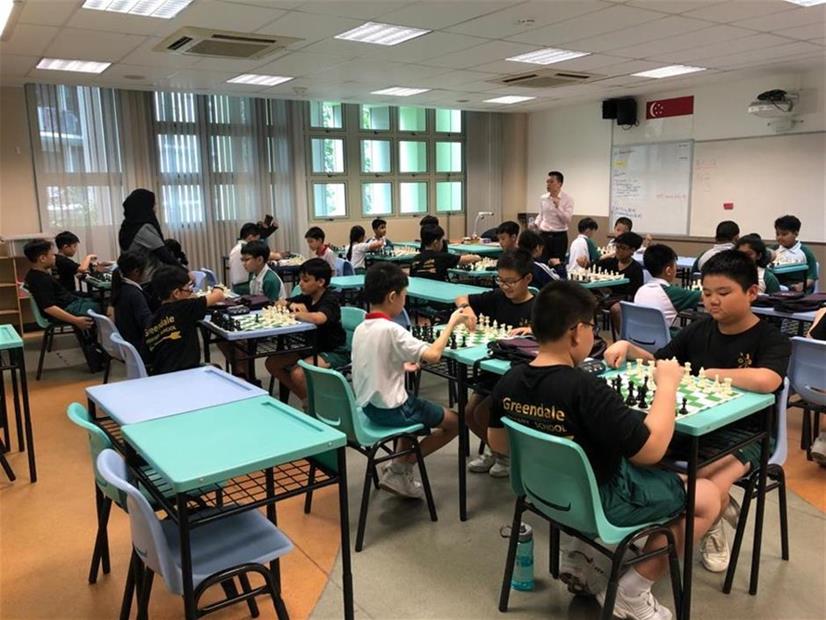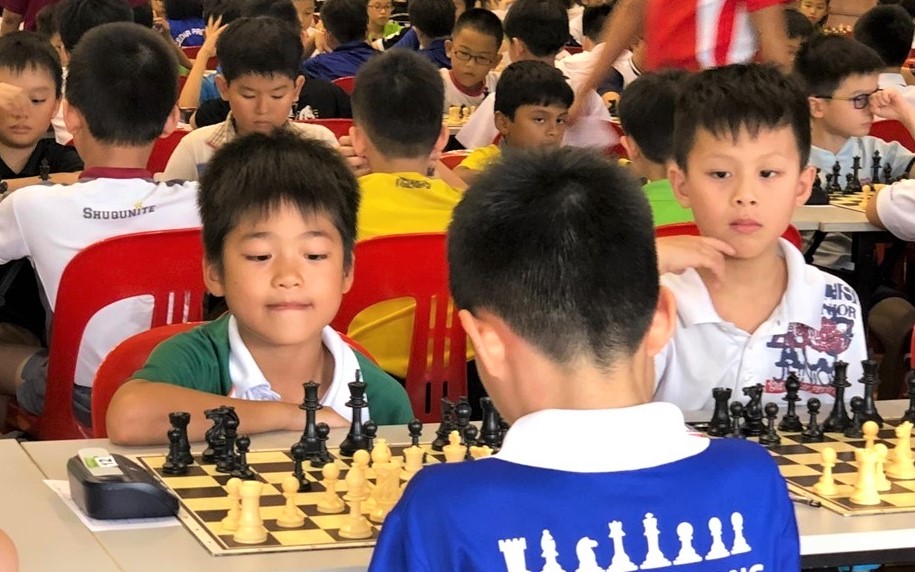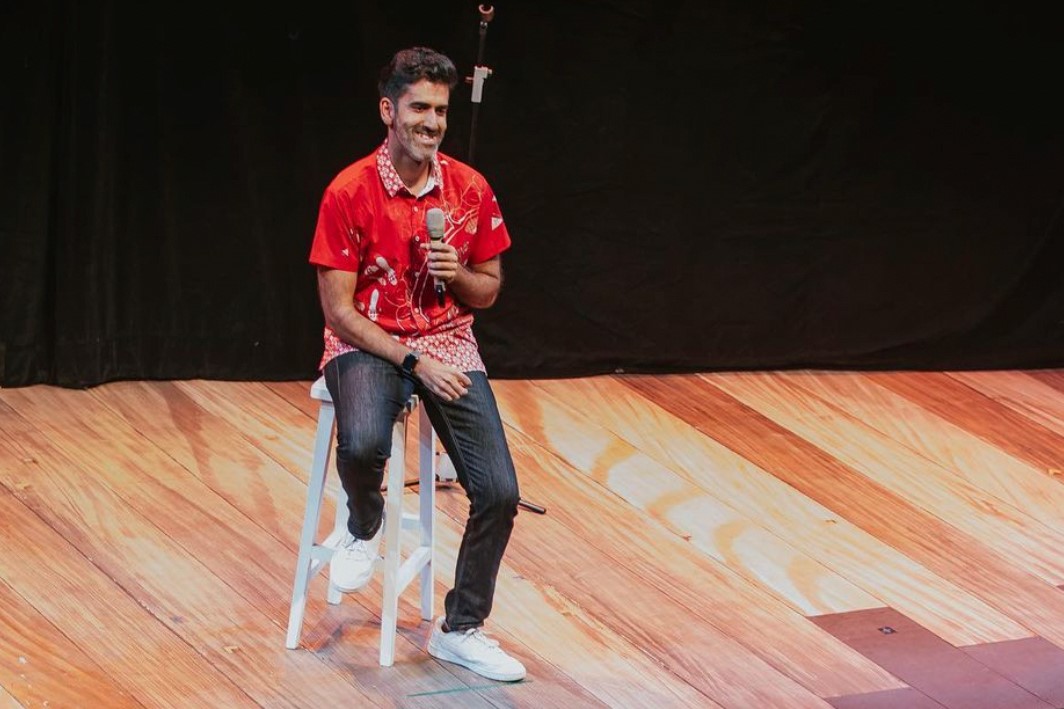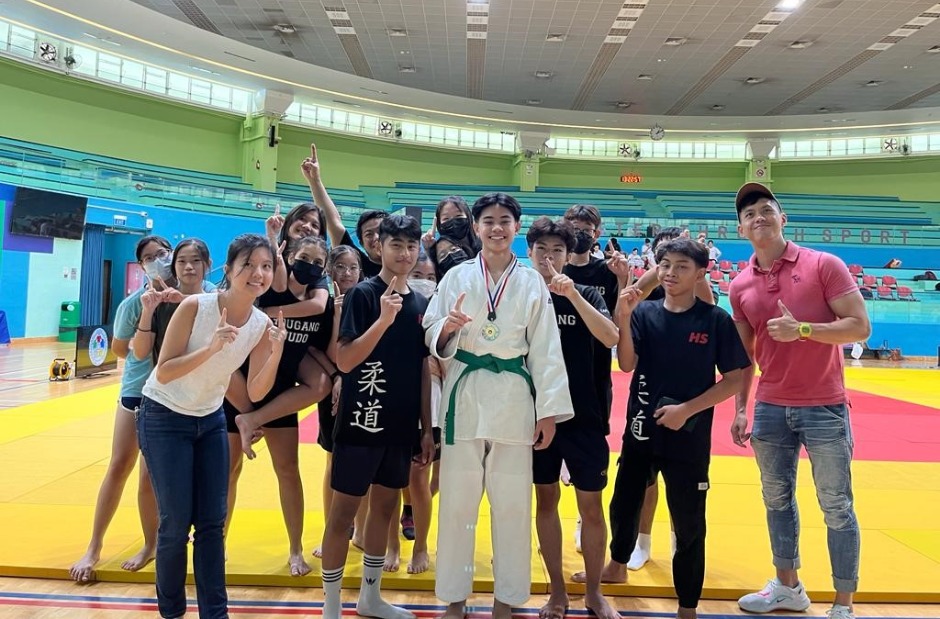Tactical moves for Chess Club
29 Sep 2020
-gdps.jpg)
Remote learning became a useful solution for Greendale Primary School’s Chess Club when the pandemic caused a disruption to the CCA’s activities. Here’s how the school took to the eCCA route to tap on the possibilities of self-directed online learning. Grace Chia reports.
The year 2020 started on a downer, with Covid-19 threatening to close all schools. Luckily for Greendale Primary School’s Chess Club, since January, some members had started to compete against each other on Chess.com, an online platform for chess enthusiasts. This initial experiment to take the game online proved to be a wise strategy, for it enabled the club to smoothly transition to the eCCA (electronic Core Curricular Activities) format in July, right in the midst of the pandemic and social distancing.
The school’s Chess Club was formed in 2016 by the main teacher-in-charge, Mr Yuen Hong Sheng, who is passionate about all things chess. Initially, he coached the students in international chess (the Club’s core game) as well as Chinese chess and weiqi. “I realised, in order to level up my students’ skills, I needed to hire a professional chess coach.”
Coach Lee Peng Keong came on board in the beginning of 2020 and was instrumental to helping keep the CCA going online. Coach Lee says, “I thought of a remote way of teaching my students during the pandemic, so I created a club on Chess.com under the school’s name and started to add members. This was done through two levels of authentication. Once added, the members would play online with each other and I will coach or debrief them at the end of the session using Zoom, with CCA teachers-in-charge present.”

Coach Lee instructing the Chess Club members during a pre-Covid-19 session
In a physical setting, players crowd around a table for the coach to explain a game. But online, each player can access the coach’s screen in the privacy of their homes. Coach Lee is cognisant of the pros and cons to learning chess online. “Normally, during a physical CCA session, students are asked to record their chess moves on a piece of paper, which I will later analyse. Sometimes, they record the wrong moves. On an online platform, the software will analyse and notate their moves accurately on their behalf, which they can review and self-analyse on their own.
“A computer can also calculate 20-50 moves in advance or spot blunders which humans can’t. But, even if they can point out which are the best moves, they can’t verbalise the reasons behind it. So a computer will not be able to replace a human coach.”
The merits of chess playing are not limited to learning about planning, calculation, improving memory and visualisation. “Chess teaches students to learn from their mistakes, for they might lose 10 out of 10 games they play. Chess teaches them how to cope in the face of adversity, to use each game lost as a learning opportunity, for tougher players can make tougher students.”

Photo of the Chess Club members in competition mode before Covid-19
As one of the CCAs in the school’s pilot phase to go online, the Chess Club faced an initial hiccup. Mr Yuen says that Coach Lee was accidentally kicked out of a Zoom session during their first eCCA lesson and it took twenty minutes for them to restart a new Zoom session. “It has been a steep learning curve for the teachers to adopt the eCCA format, and for our students to adapt to it.
“The downside to the online format is less physical interaction and bonding among the students, for they not only learn from the coach but among peers. The upside is that, after a few months, some of our students playing chess online have improved their skills so much they are comparable to the Club’s top players.”
Head of Department for CCA, Mr Ng Kok Shern, says “We were always keen to use technology to complement our normal CCA curriculum. To do so, we teach our students about cyber wellness, online etiquette and the possible dangers of cyber space through the CCE Curriculum. During eCCAs, our teachers are the ones to open and host the online sessions, screen who’s who in the session and make sure students turn on their video function. This is for their safety and security online, as well as to keep them engaged throughout the session. Following the Chess Club’s successful implementation, we extended eCCAs to other clubs & societies and even uniformed groups.”
Mr Ng added the primary goal of eCCAs is to encourage self-directed learning in the students. “In future, we may consider a blend of onsite and online learning by tapping on both formats to help our students acquire relevant life skills.”
*This is a series of articles on eCCAs being conducted in MOE schools. Click here for:
Admiralty Primary School’s Choir | Bedok Green Secondary School’s Environment Club | St. Margaret’s Secondary School’s Debate Club



.jpg)

.jpg)